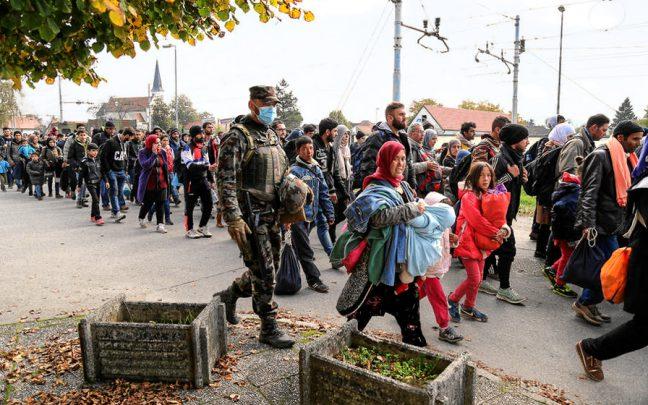Politicians often talk about how the U.S. holds the title of the leader of the free world. This is a fairly indisputable factual statement.
As the leader of the free world, the U.S. garners some significant benefits. Global trade uses the U.S. dollar, the U.S. has a seat on the United Nations Security Council, we have the world’s strongest economy and a multitude of other benefits.
Every single day, the U.S. and its citizens benefit from the country’s geopolitical and economic power.
Yet too often people believe these benefits should come with no cost. Too often, we as Americans only want to accept the benefits of being the leaders of the world. But being the leaders of the world doesn’t come free of cost. An inherent part of that role lies in taking on the responsibilities and burdens that come along with it.
The U.S. has the burden to protect the human rights not only of its own citizens, but also the citizens of the world. But too often the U.S. shrugs off that responsibility.
Nowhere does the U.S.’s failure to fulfill its role as world leader become more apparent than in the way the it has handled the Syrian refugee crisis.
Maybe equating human lives with candy is not the best way to analyze political crises
Even if one ignores the fairly obvious argument that the U.S. holds ultimate responsibility for the emergence of the refugee crisis, in its role as world leader, the U.S. still has a responsibility to help the Syrian refugees.
Instead, the discussion here in the U.S. regarding the refugee crisis has focused primarily on how accepting refugees could have a possible negative impact on the U.S. Fear of the possibility that terrorists could come into the country, along with the refugees, has brought the U.S. efforts to help to a halt.
So while the U.S. sits on the sideline, fearing the possibility of a terrorist attack, hundreds of thousands of Syrians perish.
People will argue that the U.S. government only has a responsibility to its citizens, but the U.S. position as leader of the world makes it responsible for all citizens of the world.
Half a century ago, Americans believed communism represented the greatest threat to the U.S., while today many view terrorism as the great threat. Half a century ago the U.S. embraced with open arms the helpless people fleeing totalitarian communist regimes, and today the same country rejects those fleeing radical terrorism.
Walker: ‘The state of Wisconsin will not accept new Syrian refugees’
The U.S. became the leader of the world because we used to stand up for what we believed to be right. Today, the U.S. cowers in fear when faced with that which we believe to be wrong — the same things we used to sacrifice our lives fighting against.
We used to fight in the face of danger for values like basic human rights and freedom. Today, we flee when faced with danger. Yesterday, we fought for our ideals, while today we fight our fears.
How can we justify letting our fear of terrorism decay our fundamental belief that the U.S. represents a beacon of hope and freedom in the world? How can we leave six million Syrians — six million humans — to helplessly face the very same thing we fear?
The U.S. has a moral responsibility to help those people, and today we must accept our burden. The time has come to open our arms and embrace those who need our help. No longer should we debate letting 10,000 Syrian refugees in — today we should embrace accepting hundreds of thousands.
And to hell with our fears of terrorism — our fear gives them victory. The very goal of terrorism centers on instilling fear into our hearts where compassion used to lie.
Today, the U.S. needs to step up and do its part in leading the world past the horrors of terrorism. Today, the U.S. needs to escape from fear and return to its place as the leader of the world.
So, my fellow Americans: Ask not what the world can do for you, ask what you can do for the world.
Connor Allen ([email protected]) is a junior majoring in economics and history.








